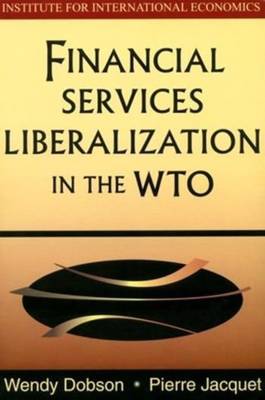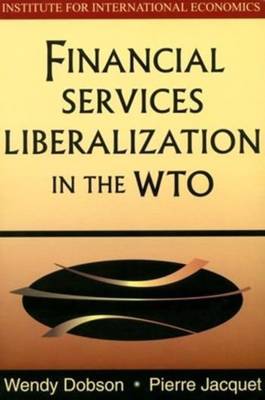
- Afhalen na 1 uur in een winkel met voorraad
- Gratis thuislevering in België vanaf € 30
- Ruim aanbod met 7 miljoen producten
- Afhalen na 1 uur in een winkel met voorraad
- Gratis thuislevering in België vanaf € 30
- Ruim aanbod met 7 miljoen producten
Zoeken
€ 42,45
+ 84 punten
Omschrijving
The stakes were high in the financial services negotiations that were completed in December 1997 at the World Trade Organization (WTO). The developing countries were eager to strengthen and modernize their financial systems. The industrial countries sought access to important emerging markets in Latin America and Asia for their banking, insurance, brokerage, and other financial services firms. In the end, both sides agreed to bind unilateral and regional financial opening and reform that was already under way in many countries, industrial and developing alike.
The authors assess the agreement reached in the WTO, identifying its shortcomings and suggesting ways that it can be bolstered in future negotiations. They analyze the impact of the agreement, and of the Asian financial crisis, on the state of liberalization and market opening in several important emerging-market economies--including a summary of the remaining obstacles to establishing efficient and open financial sectors. This book estimates the benefits of opening the financial sector to foreign competition. It assesses the macroeconomic benefits that flow from an improved financial sector and discusses the risks and costs involved in liberalization. The authors conclude with a blueprint for future efforts to liberalize financial services and emphasize that the recent financial services agreement represented only a beginning step in that process.Specificaties
Betrokkenen
- Auteur(s):
- Uitgeverij:
Inhoud
- Aantal bladzijden:
- 376
- Taal:
- Engels
Eigenschappen
- Productcode (EAN):
- 9780881322545
- Verschijningsdatum:
- 1/06/1998
- Uitvoering:
- Paperback
- Formaat:
- Trade paperback (VS)
- Afmetingen:
- 155 mm x 231 mm
- Gewicht:
- 521 g

Alleen bij Standaard Boekhandel
+ 84 punten op je klantenkaart van Standaard Boekhandel
Beoordelingen
We publiceren alleen reviews die voldoen aan de voorwaarden voor reviews. Bekijk onze voorwaarden voor reviews.











